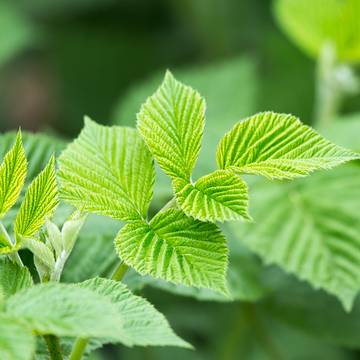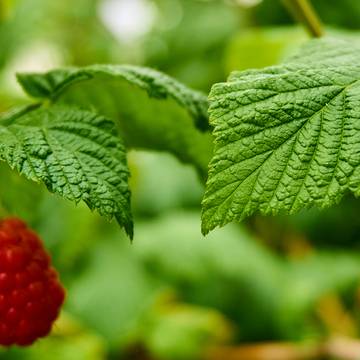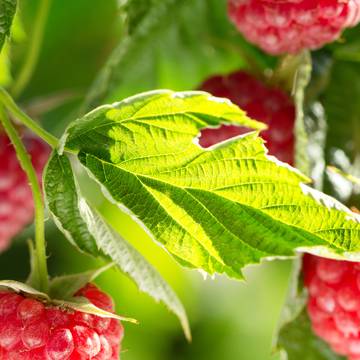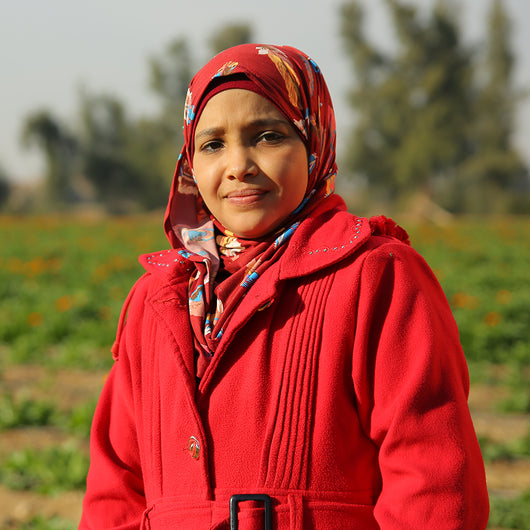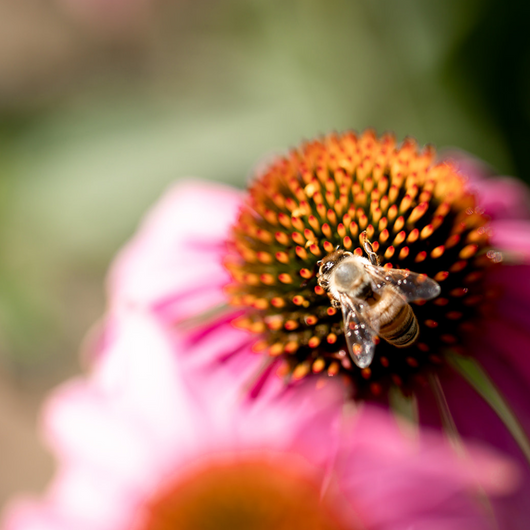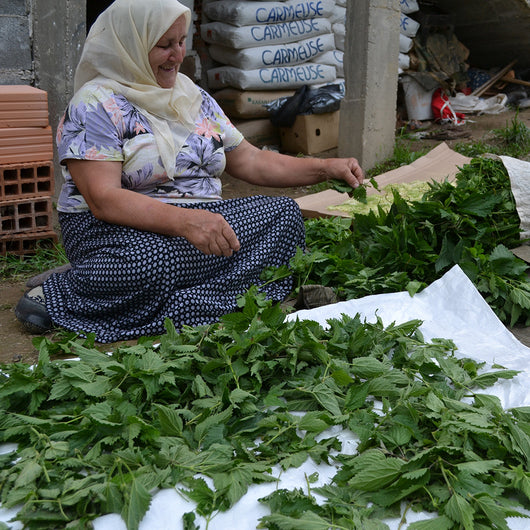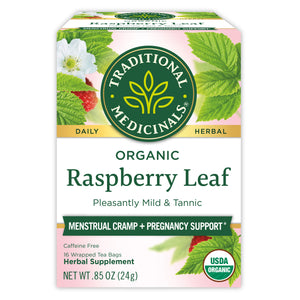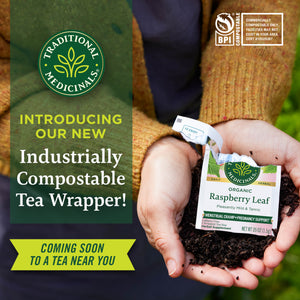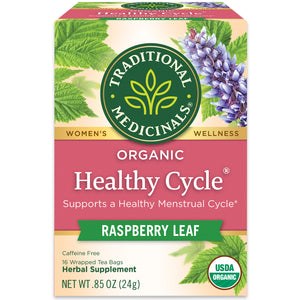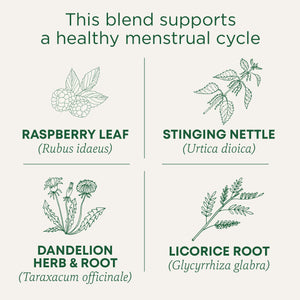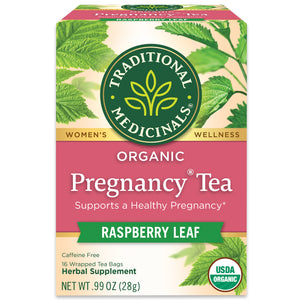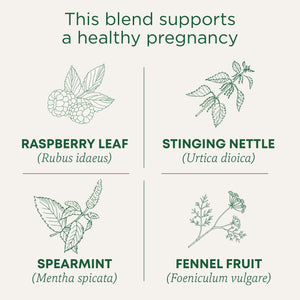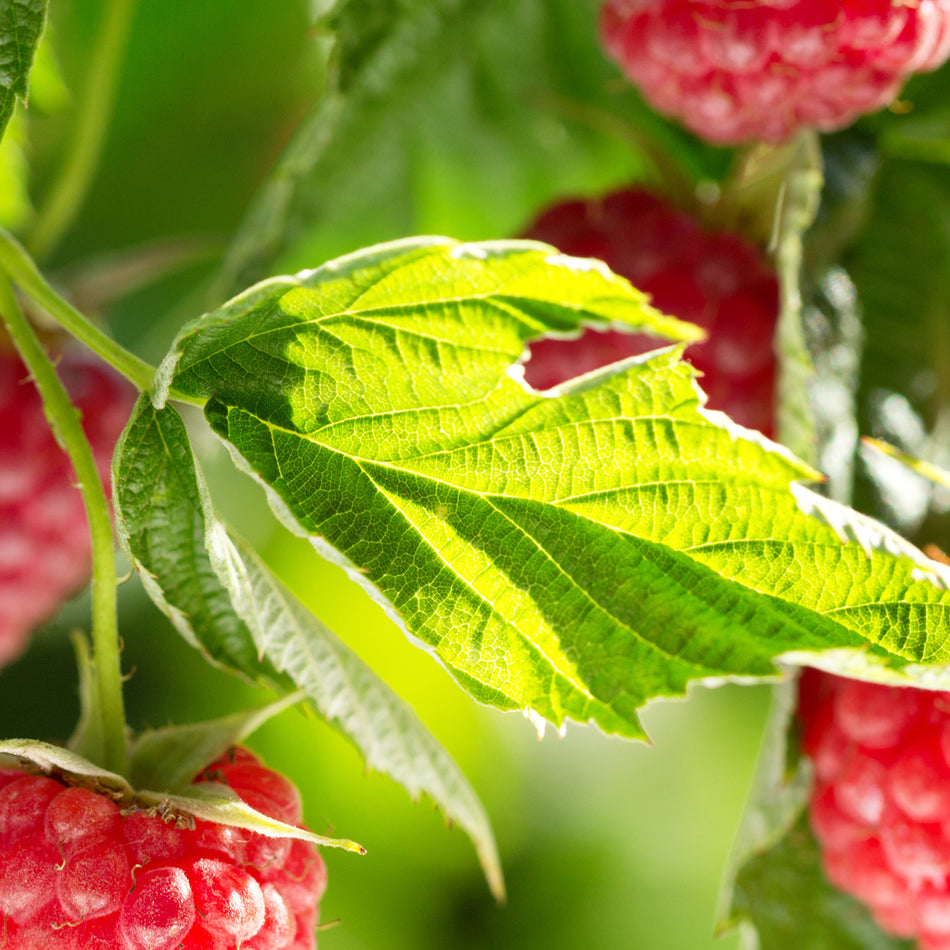
Raspberry Leaf
Rubus idaeusEuropean and Native American women have been reaching for raspberry leaves for centuries to relieve normal menstrual cramps and prepare the womb for childbirth during pregnancy.*
Red raspberry, more than a summertime fruit.
What are the Benefits of Raspberry Leaf?
Most commonly known for its juicy red berries, the leaves of the raspberry bush have traditionally been prepared as an herbal infusion or tincture to support everyday conditions of the female reproductive system.*
When enjoyed as a tea, raspberry leaf imparts an earthy flavor similar to black tea due to its tannin-rich phytochemical makeup. This high tannin content is what contributes to raspberry leaf’s benefit as an herbal astringent, which helps to tone and tighten tissue. This action is what makes raspberry leaf the perfect herb to ease normal menstrual and gastrointestinal cramping and toning the uterine tissues for labor.* Traditional herbal practitioners have even used it for the mouth or throat and for relief of loose stool for this very reason. In addition to its impressive astringent properties, raspberry leaf is also considered nutritive and antispasmodic.* Categorized in herbal medicine as a tonic herb, raspberry leaf tea can be enjoyed as an everyday supplement.
Whether you’re enjoying the delectable red berries or the full-bodied flavor of the leaves, incorporating this powerful herb into your routine can be wonderfully supportive.
Folklore & Historical Use of Raspberry Leaf
Although there are many species of raspberry plants, Rubus idaeus is the most recognized for its medicinal properties within herbalism. It’s said the Greek Olympian Gods could be found collecting the ripe berries around Mount Ida, hence the name Rubus idaeus which means “bramble of Ida” in Latin.
European and Native American women have used these leaves for thousands of years to prepare the womb for childbirth, and some farmers even use it for their lady goats who are expecting. And raspberry leaves aren’t just for women, its been traditionally used as a spasmolytic in cases of diarrhea.
Botanical Description & Habitat
Although raspberry bushes are grown across the globe, it’s indigenous to Europe and Asia in temperate climates. It can often be found growing in moist areas or places that have been cleared or were somehow disturbed. We source some of our high-quality, medicinal raspberry leaves from Bosnia and Herzegovina where they are wild harvested.
The perennial bush ranges from 3-4 feet tall and feature broad, ridged leaves with a silvery underside, and tiny thorns along the stems. The red berries are the most familiar feature of this plant, but the leaves are commonly harvested before it begins to flower when it has been thought to have a higher level of medicinally active botanical compounds.
When To Use Raspberry Leaf
Sip daily at least a week or two before menstruation.
Consume regularly leading up to childbirth.
The Business of Sustainable Plants
Our business is rooted in plants, and for us, it’s a business imperative that we care for the ecosystems where these plants live and thrive. We believe that everything is interconnected, which means supporting ecosystems and the farmers and collectors who harvest and gather our herbs. Finding opportunities to reduce or eliminate emissions at the source, we support organic and regenerative farming practices as well as voluntary certifications like Organic and FairWild. These ensure the absence of pesticides, herbicides, as well as the ongoing sustainability of wild collection, and the health and livelihoods of the collectors who forage. Josef Brinckmann, Traditional Medicinals’ Research Fellow, Medicinal Plants and Botanical Supply, asserts, “Everyone has a role to play in preserving biological diversity. One way of doing that is by equitably supporting the local people to serve as stewards of the land.”
It Starts with Organic
We choose to source organic because we believe in the positive impacts it has on environmental sustainability, biodiversity, and overall ecosystem health. Organic helps us increase transparency while prioritizing consumer well-being and farmer success, which is key to producing the high-quality herbs we source. In 2021, we procured 2.73 million pounds of certified organic herbs, over 99.7% of our total botanical herbs purchased. Volumes were down slightly from FY20 due to timing of inventories received.
The impact from organic farming creates a vital ecosystem through improved soil health, water quality, pollinator habitats, and biodiversity. Organic farms also have increased carbon sequestration potential through long-term carbon storage in the soil, helping to mitigate climate change.
One of the benefits of organic that we most value is farmer health. We care deeply about the people who produce our herbs, ensuring that they are not exposed to synthetic chemicals found in conventional agriculture.
Fair Trade
We believe that everyone deserves a fair wage for hard work. That’s one of the reasons why we’re committed to fair trade. Traditional Medicinals® is a registered Fair Trade “brand holder”, “licensee” and “manufacturer,” and our products are certified by Fair Trade USA, an independent third-party certifier. We were an early adopter of Fair Trade, having launched our first fair trade tea product in 1998, just one year after Fairtrade International (FLO) was established. We continue to work closely with our network of producers to help them to implement fair trade standards and get certified.
Raspberry Leaf Tea
Additional Information
Important Precautions:
Consult your healthcare practitioner prior to use if you are pregnant or breastfeeding.
Legal Disclaimer:
The information and other content in this article is designed to provide a general overview of the botany, cultural history, and traditional uses of this herb. It is not intended and should not be construed as health advice. Every person is unique and you should consult with your health care provider before using any herbal product or supplement.

